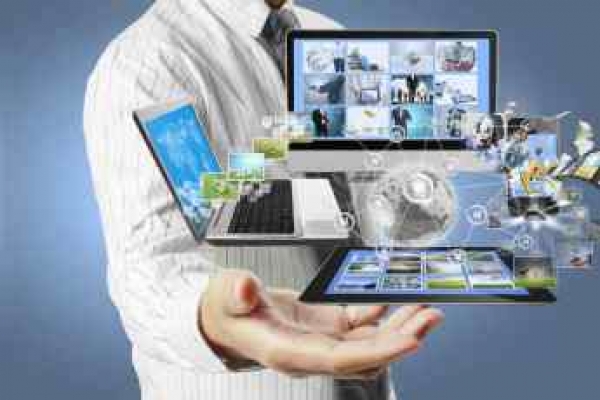Fuelled by unprecedented computing power and massive data analytics capabilities, Artificial intelligence (AI) has come into its own within the last decade. From a technology perspective, the advance of AI continues to penetrate across industry segments in an extraordinary speed, from improving the efficiency and quality of IT services to client interaction and personalization, to autonomous infrastructure and application service management to biometrics. AI is becoming a key factor that shapes the business and government competitive landscape and promises to enhance people’s lives in the future.
Influencing the HR function
The advent of such technologies has definitely influenced the overall human resources to function from talent acquisition to any people-based business decision-making. With innovation and transformational leadership being the need of the hour, the HR world is re-imagining itself by leveraging technologies like automation and AI to re-engineer, reskill, and support the overall development of the organization. From screening thousands of resumes to identifying the right candidate, negating human biases AI plays multiple roles in today’s HR arena. Going beyond talent acquisition, currently AI driven Chatbots (like CHOTU by Unisys) help in seamless onboarding of employees even in remote locations.
AI penetration in an organization in the HR arena moves several notches higher and like never before, with face-recognition, measuring employee’s psychological/emotional traits and predictive analysis offering insights into employee satisfaction, and throwing very different people perspective. AI coupled with human intelligence gives a holistic solution to the ever-increasing business challenges.
The industry-wide impact
According to a survey conducted by TimesJobs, where 2,900 HR professionals across industries participated, 37% respondents feel that tech and telecommunication sectors will become the leaders in the domain of AI and automation adoption, whereas 34% of individuals feel that IT sectors will be the next big adaptors. 46% of the professionals responded that companies will adopt AI at the medium level at their workplaces, whereas 42% responded that the adoption of AI at workplaces will be at a higher level.
The aforementioned data provides insights into a wide variety of industries that AI will impact, thus changing the business models. Technology advancement brings a unique set of challenges and threats to an organization. From concerns pertaining to cybersecurity to the sensitive aspect of data privacy and the lack of required expertise and infrastructure leading to employees’ resistance to embracing newer technology, and so on. Despite such drawbacks, the industry perceives the opportunities and benefits that come along with it. Increasingly, organizations are gearing up to accept the need to embrace newer and advanced technology for bettering not merely the business performance, but the very human race. Significant investments are being made by companies to leverage advanced technology, and HR is at the very center of such a huge transformation, creating a higher order value preposition to the talent and business landscape by way of coupling human intellect and artificial intelligence.
Does your organisation support you in maintaining work-life boundaries?
Trending
-
SBI General Insurance Launches Digital Health Campaign
-
CredR Rolls Out 'Life Happens' Leave For Its Employees
-
Meesho Announces 30-Week Gender-Neutral Parental Leave Policy
-
Microsoft Unveils Tech Resilience Curriculum To Foster An Inclusive Future
-
60% Indian Professionals Looking For Job Change Due To COVID: Survey
-
SpringPeople And Siemens Collaborate For Digital Transformation Push
-
86% Professionals Believe Hybrid Work Is Essential For Work Life Balance: Report
-
Almost 1 In Every 3 People's Personal Life Affected Due To Work Stress
-
Meesho Rolls Out Reset And Recharge Policy For Employees
-
80% Of Talent Leaders & Academics Say Pandemic Changed Skill Needs For Youth: Report
-
Hero Electric Rolls Out 'Hero Care' Program For Employees
-
Human Capital In Collaboration With ASSOCHAM Hosts Virtual Conference
-
IKEA India, Tata STRIVE Collaborate To Create Employability And Entrepreneurship Opportunities
-
SAP India, Microsoft Launch Tech Skilling Program for Young Women
-
DXC Technology, NASSCOM Collaborate For Employability Skills Program
-
Lenskart To Hire Over 2000 Employees Across India By 2022
-
Mindtree Launches Learn-and-Earn Program
-
Tata AIA Extends 'Raksha Ka Teeka' To Its Employees
-
Swadesh Behera Is The New CPO Of Titan
-
NetConnect Global Plans To Recruit 5000 Tech Professionals In India
-
Hubhopper Plans To Hire 60% Of Indian Podcasters By 2022
-
Corporate India Needs More Women In Leadership Roles: Report
-
Aon to Invest $30 Million and Create 10,000 Apprenticeships by 2030
-
Tech Mahindra Launches ‘Gift a Career’ Initiative for Upskilling of Youth
-
40% Women Prefer Flexible Working Options in Post-COVID World: Survey
-
3 out of 4 companies believe they can effectively hire employees virtually: Report
-
Vodafone , CGI and NASSCOM Foundation launch digital skills platform
-
Odisha: Bank, postal employees to deliver cash for elderly, differently-abled persons
-
Skill India launches AI-based digital platform for "Skilled Workforce"
-
Hiring activity declines 6.73% in first quarter: Survey
-
70% startups impacted by COVID-19 pandemic
-
Bajaj Allianz Life ropes in Santanu Banerjee as CHRO
-
Over 70 Percent MSMEs look at cutting jobs to sustain businesses
-
93 Per Cent employees stressed about returning to office post-lockdown
-
Johnson & Johnson India announces family benefits for same gender partners
-
Indian firms turning friendly towards working mothers
-
Welspun India names Rajendra Mehta as new CHRO
-
Wipro partners with NASSCOM to launch Future Skills platform



Human Capital is niche media organisation for HR and Corporate. Our aim is to create an outstanding user experience for all our clients, readers, employers and employees through inspiring, industry-leading content pieces in the form of case studies, analysis, expert reports, authored articles and blogs. We cover topics such as talent acquisition, learning and development, diversity and inclusion, leadership, compensation, recruitment and many more.
Subscribe Now









































Comment